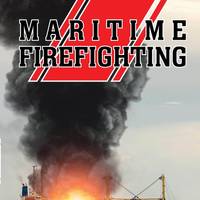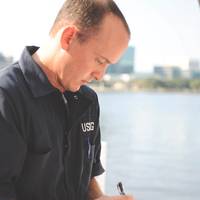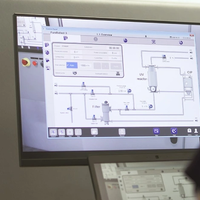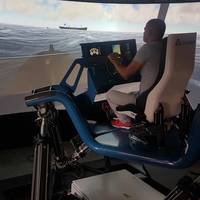On the Bookshelf: Maritime Firefighting

Maritime Firefighting by Captain Emil Muccin, USMS (ret.) and Matthew Bonvento is a comprehensive and modern guide for maritime professionals. It addresses the unique challenges of shipboard firefighting by integrating traditional methods with the latest advancements in equipment and procedures. This book effectively replaces outdated instruction aids by providing up-to-date, actionable knowledge. Using the IMO Model courses of Basic and Advanced Firefighting as a baseline, the authors take a deep dive into subjects that have not been explained in detail in previous books…
Naval Architecture and Marine Engineering Tops for Jobs

The results of a recent survey conducted by financial services company Bankrate, LLC show that naval architecture and marine engineering take the top spot as the most valuable college degrees in which to major.A total of 162 degrees were covered in the company’s research. Drama and theater arts, on the other hand, were shown to be the least valuable degrees in terms of earning power after graduation. The survey revealed that the overall median income for those trained to build, design and maintain maritime vessels was $90,000 and that less than 2 percent of degree holders were unemployed.
Rep. Gunn Addresses Ingalls Graduates

Huntington Ingalls Industries hosted a graduation ceremony on Saturday for the company’s apprenticeship program at Ingalls Shipbuilding. Nine different crafts were represented among the 159 graduates of the 2019 class.Mississippi Speaker of the House, Philip Gunn, delivered the keynote address. “The prosperity of Mississippi begins with people like you,” he said. “The careers for which you are now prepared are the backbone of America. Over 60 percent of the jobs in America are held by people like you who make up a skilled and educated workforce.
USCG Seeking SME's for Working Groups

The National Maritime Center is still seeking participants for the three remaining merchant mariner examination working group meetings in 2019.Deck working group – September 10-12Engine working group – October 22-24Deck working group – December 3-5Examination reviews are currently scheduled to take place at the National Maritime Center in Martinsburg, West Virginia. However, dates and locations may change based on the number of attendees.Section 315 of the 2015 Coast Guard Authorization…
Lowering Shipbuilding Costs with Immersive Training

The fiercely competitive domestic boatbuilding industry looks for any advantage in the day-to-day battle for bottom line efficiencies. ‘XR Technologies’ offer an edge to shipyards as they grow their workforce.In the shipyard, skills such as welding and coating are in high demand. The ability to lay down a proper bead, or perfect the mil build on a ship’s hull can make the difference between a successful project and a failed inspection. XR technologies are valuable compliments to traditional training programs (XR is an umbrella category for virtual reality [VR]…
Day of the Seafarer June 25th, 2019: A message from Wallem

If global trade is the engine of economic growth, shipping is the cylinder oil that keeps the engine running. However, the people who make this – our – industry work are almost invisible, as they labour unseen beyond the horizon and out of mind.For this reason, the Day of the Seafarer should be applauded for encouraging us to pause and reflect on the importance of deck officers, engineers and everyone else on whom the industry relies to ensure cargoes are delivered safely and…
Captain Rhéaume Joins MSRC

Captain Louis Rhéaume has joined the team at Maritime Simulation and Resource Center (MSRC).At MSRC Captain Rhéaume will supervise the implementation of maritime expertise projects and provide his professional and administrative experience to the pilots in training. Captain Rhéaume is a graduate of the Institute maritime du Québec and holder of a Master Foreign Going Certificate. He was a pilot on the St. Lawrence River in the Quebec-Escoumins sector from 1984 to 2018, President of the Lower St.
Alfa Laval Expands PureBallast Training Scheme

Compliance in ballast water treatment depends on crew knowledge as well as the ballast water treatment system itself. To help customers secure the needed competence, Alfa Laval is expanding its Alfa Laval PureBallast 3 training program with crew training in Houston, Manila and Mumbai.Alfa Laval will begin PureBallast 3 crew training courses in Houston, Manila and Mumbai during the first and second quarters of 2019. The strategically located sites complement Alfa Laval’s state-of-the-art facility in Stockholm…
Training Day: Cruden’s pioneering Fast Craft Simulator

Marine simulators are commonplace in the training and development of crew for large vessels. Not so much for small, fast patrol and attack craft.From the mid to late 1970s, marine simulators developed into a viable training tool for trainee mariners. Their initial popularity developed as opportunities for practical training became scarcer and a lot costlier, too. Since then, however, the advancement of the technology has brought a new dimension to professional crew training for small, fast craft.







